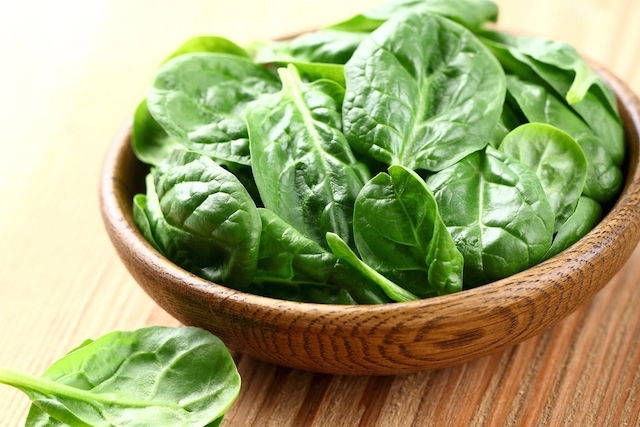Folic acid foods, like spinach, beans, beer yeast and asparagus, should be a part of a balanced diet. This vitamin is important for the formation of cells and for strengthening the immune system. It also helps to keep blood vessels healthy and contributes to overall brain health.
A folic acid deficiency can lead to health problems like a stroke, anemia, heart attack, Alzheimer’s and even some types of cancer. Women who are pregnant or trying to get pregnant should also ensure adequate folate intake, as decreased amounts can cause serious health conditions in the baby.
In addition to folic acid supplementation, OBGYNs will generally advise pregnant women to additionally take vitamin B9 so that the mom and baby’s needs are both met.

Folic acid foods
The following table outlines the amount of folate in 100 g of each listed food:
These foods naturally contain folic acid, however there are also folate-enriched foods available for purchase, like flour.
Recommended daily dose
The recommended daily dose of folic acid varies depending on age.
- Newborns to 6 months old: 65 mcg per day,
- 7 to 12 months old: 80 mcg per day
- 1 to 3 years old: 150 mcg per day
- 4 to 8 years old: 200 mcg per day
- 9 to 13 years old: 300 mcg per day
- Children over 14 years old and adults: 400 mcg per day
- Pregnant women: 600 mcg per day
- Breastfeeding women: 500 mcg per day
During pregnancy, increased doses are advised to prevent neural tube and spinal defects in the baby.






























